AROBS Transilvania – custom software development company
Services for Cybersecurity Compliance for NIS2
- Home
- Services for Cybersecurity Compliance for NIS2
Services for Cybersecurity Compliance for NIS2
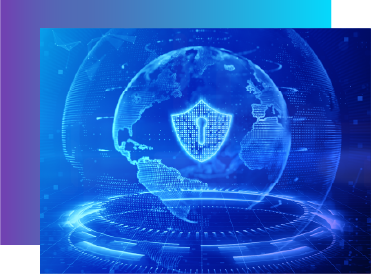
// AROBS TRANSILVANIA SOFTWARE
Services for Cybersecurity Compliance for NIS2
The Network and Information Security Directive and its updated version, NIS2, impose Cybersecurity compliance obligations on several sectors and industries within the European Union, according to Directive (EU) 2022/2555 of the European Parliament and of the Council of 14 December 2022 on measures for a high common level of cybersecurity across the Union. The NIS2 Directive is also significant for technology and software development industry, emphasizing the importance of secure coding practices, risk management and cybersecurity systems.
Our NIS2 experts have accreditations released by the Romanian National Cyber Security Directorate; our specialists will develop, monitor, and audit cybersecurity compliance processes’ technical and organizational standards according to the industry, customer, legislative, and business requirements.
AROBS will support organizations in all sectors under NIS2 to get equipped for enhanced scrutiny. Both essential and important entities under NIS2 must assume thorough cybersecurity standards, including:
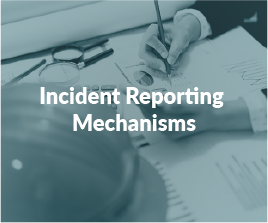
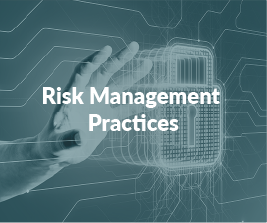

Is your business ready for NIS2? Discover how we can help!
Which Organizations Must Implement Cybersecurity Compliance Processes Under NIS2?
Essential Entities
These organizations are vital to the societal and economic well-being of the EU and face more elevated compliance prerequisites.
These sectors need robust incident reporting mechanisms and are subject to severe penalties for non-compliance, including fines up to €10 million or 2% of total annual worldwide turnover, whichever is higher.









Important Entities
A new category introduced with NIS2 encompasses different sectors that will comply with less strict obligations than essential entities.
Organizations in these sectors must execute adequate cybersecurity practices and are subject to administrative fines of up to €7 million or 1.4% of total annual worldwide turnover, whichever is higher








Ensure compliance with NIS2 today to avoid cyber threats and fines!
Penalties for Non-Compliance with the NIS2 Directive
Failing to comply with the NIS2 Directive leads to substantial and severe penalties.
Penalties for Essential Entities
1. Fines: administrative penalties of up to €10 million or at least 2% of their total annual worldwide turnover from the previous fiscal year, whichever amount is higher.
2. Potential Legal Action against organizations that do not meet compliance standards.
3. Management Accountability: Corporate management may be liable for breaches, including temporary bans from management roles.
4. Increased Scrutinity: Non-compliance may lead to heightened scrutiny from regulatory bodies, affecting business operations and prestige.
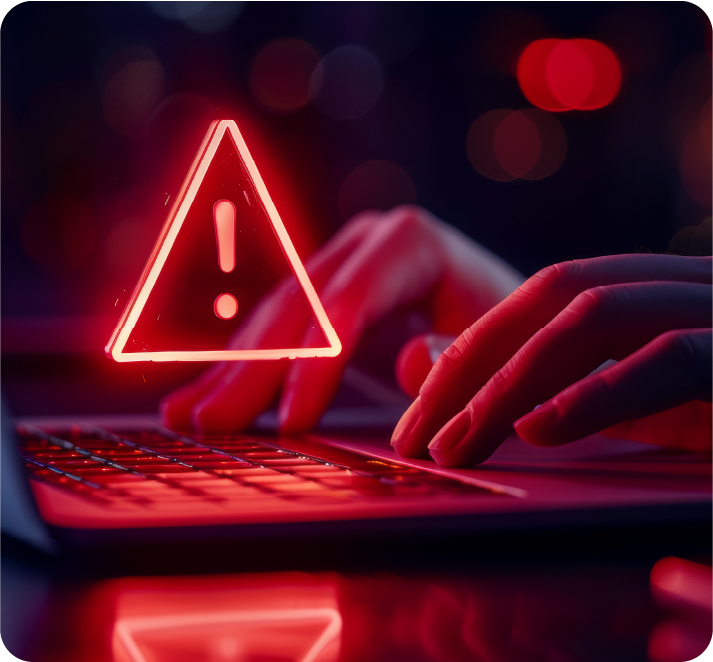

Penalties for Important Entities
1. Fines: administrative penalties of up to €7 million or at least 1.4% of their total annual worldwide turnover from the previous fiscal year, whichever is higher.
2. Reputational damage: Non-compliance can seriously harm an organization’s reputation, impacting customer trust and stakeholder relationships.
3. Operational Restrictions: Organizations may encounter constraints in their operations, including operational audits or reviews.
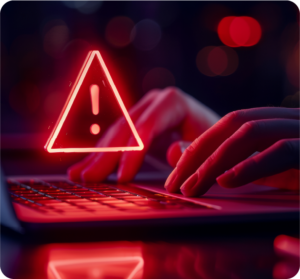
Penalties for Essential Entities
1. Fines: administrative penalties of up to €10 million or at least 2% of their total annual worldwide turnover from the previous fiscal year, whichever amount is higher.
2. Potential Legal Action against organizations that do not meet compliance standards.
3. Management Accountability: Corporate management may be liable for breaches, including temporary bans from management roles.
4. Increased Scrutinity: Non-compliance may lead to heightened scrutiny from regulatory bodies, affecting business operations and prestige.

Penalties for Important Entities
1. Fines: administrative penalties of up to €7 million or at least 1.4% of their total annual worldwide turnover from the previous fiscal year, whichever is higher.
2. Reputational damage: Non-compliance can seriously harm an organization’s reputation, impacting customer trust and stakeholder relationships.
3. Operational Restrictions: Organizations may encounter constraints in their operations, including operational audits or reviews.
Achieve NIS2 compliance with our experts and protect your business!
AROBS Cybersecurity services for compliance with the NIS2 Directive
AROBS offers cybersecurity services in sync with the NIS2 Directive requirements, supporting companies in executing specific measures to improve their cybersecurity stance and fulfil regulatory requirements.
Our NIS2 experts hold accreditations released by the Romanian National Cyber Security Directorate, and our cybersecurity team, holding over 50 accredited certifications, specializes in penetration testing, security audits, vulnerability management, preventive actions, and threat hunting. Together with our cybersecurity experts, we can shield your organization against threats, establishing new standards for information security and cybersecurity compliance according to the applicable legislation.
Read more about our Managed Cybersecurity Services to discover our expertise!
AROBS delivers Key cybersecurity Compliance services for NIS2
• Conduct Risk Assessments: regularly evaluate and determine risks within the organization’s information systems and establish comprehensive security policies to manage these risks.
• Develop Security Policies and Procedures: Design and sustain policies that enhance the effectiveness of security measures across the organization – including technical and organizational measures- guaranteeing they are regularly revised to mirror new threats and vulnerabilities.
• Implement Cryptography and Encryption: Use cryptography and encryption methods to safeguard sensitive data and communications from unauthorized access.
• Incident Management Plan: Define and execute a plan for addressing security incidents – including reporting and response mechanisms – assuring all personnel understand their roles and responsibilities during and after an incident.


• Secure System Development and Procurement: Ensure security practices are observed during system procurement, development, and operation, including regular vulnerability assessments and reporting.
• Employee Training and Cyber Hygiene: Deliver continuous cybersecurity training for all staff, concentrating on best practices and awareness.
• Data Management and Backup Procedures: Set robust data management practices, providing secure storage, frequent backups, and immutable backups to safeguard against cyberattacks.
• Access Controls: Enforce strict data access policies and procedures for employees accessing sensitive or critical data to prevent unauthorized access.
• Business Continuity Planning: Devise and regularly update business continuity plans to ensure operations can resume during and after a security incident, including maintaining access to IT systems and data.
• Regular Security Audits: Perform security audits– including technical audits such as penetration testing, configuration audits, source code audits, architecture audits, etc. – to assure compliance with the NIS2 Directive requirements and pinpoint areas for improvement.
• Ongoing Monitoring and Reporting: Support establishing mechanisms for ongoing monitoring of security measures, including periodic reporting to appointed cybersecurity incident response teams (CSIRTs) and compliance authorities, including the Romanian National CSIRT.

By embracing these measures, organizations can significantly improve their cybersecurity resilience and compliance with the NIS2 Directive, diminishing the risk of penalties and enhancing their across-the-board security posture.
AROBS Cybersecurity services for compliance with the NIS2 Directive
AROBS offers cybersecurity services in sync with the NIS2 Directive requirements, supporting companies in executing specific measures to improve their cybersecurity stance and fulfil regulatory requirements.
Our NIS2 experts hold accreditations released by the Romanian National Cyber Security Directorate, and our cybersecurity team, holding over 50 accredited certifications, specializes in penetration testing, security audits, vulnerability management, preventive actions, and threat hunting. Together with our cybersecurity experts, we can shield your organization against threats, establishing new standards for information security and cybersecurity compliance according to the applicable legislation.
Read more about our Managed Cybersecurity Services to discover our expertise!
AROBS delivers Key cybersecurity Compliance services for NIS2

• Conduct Risk Assessments: regularly evaluate and determine risks within the organization’s information systems and establish comprehensive security policies to manage these risks.
• Develop Security Policies and Procedures: Design and sustain policies that enhance the effectiveness of security measures across the organization – including technical and organizational measures- guaranteeing they are regularly revised to mirror new threats and vulnerabilities.
• Implement Cryptography and Encryption: Use cryptography and encryption methods to safeguard sensitive data and communications from unauthorized access.
• Incident Management Plan: Define and execute a plan for addressing security incidents – including reporting and response mechanisms – assuring all personnel understand their roles and responsibilities during and after an incident.

• Secure System Development and Procurement: Ensure security practices are observed during system procurement, development, and operation, including regular vulnerability assessments and reporting.
• Employee Training and Cyber Hygiene: Deliver continuous cybersecurity training for all staff, concentrating on best practices and awareness.
• Data Management and Backup Procedures: Set robust data management practices, providing secure storage, frequent backups, and immutable backups to safeguard against cyberattacks.
• Access Controls: Enforce strict data access policies and procedures for employees accessing sensitive or critical data to prevent unauthorized access.

• Business Continuity Planning: Devise and regularly update business continuity plans to ensure operations can resume during and after a security incident, including maintaining access to IT systems and data.
• Regular Security Audits: Perform security audits– including technical audits such as penetration testing, configuration audits, source code audits, architecture audits, etc. – to assure compliance with the NIS2 Directive requirements and pinpoint areas for improvement.
• Ongoing Monitoring and Reporting: Support establishing mechanisms for ongoing monitoring of security measures, including periodic reporting to appointed cybersecurity incident response teams (CSIRTs) and compliance authorities, including the Romanian National CSIRT.
By embracing these measures, organizations can significantly improve their cybersecurity resilience and compliance with the NIS2 Directive, diminishing the risk of penalties and enhancing their across-the-board security posture.
Get NIS2 compliant with our expert cybersecurity services!
Eight essential steps organizations must undertake to comply with the NIS2 Directive
Risk Management
• Audit Current Cybersecurity Posture: Perform a comprehensive review of the cybersecurity measures (GAP audit) determining strengths and weaknesses against NIS2 standards.
• Implement Risk Management Measures: Set vigorous risk management protocols to minimize cyber risks, assure incident management, and ensure a stable supply chain.
Duty of Care
• Business Continuity Planning: Secure systems for recovery during significant cyber incidents, including emergency procedures and crisis response teams.
• Data Management Practices: Enforce secure data management strategies, such as data tagging, secure backups, and maintaining data locality.
Incident Reporting
• Establish Reporting Processes: Set up procedures to report significant security incidents promptly – maintain National CSIRT reporting – and adhere to NIS2’s stringent notification deadlines, including a 24-hour early warning system.
Organizational Collaboration
• Engage All Stakeholders: Secure cross-team collaboration across IT, compliance, and management to implement security measures effectively.
• Continuous Training: Devise a training program that keeps all staff informed about cybersecurity practices and responsibilities.
Compliance and Accountability
• Management Involvement: Ensure management is knowledgeable about cybersecurity measures and accountable for compliance.
Risk Management
• Audit Current Cybersecurity Posture: Perform a comprehensive review of the cybersecurity measures (GAP audit) determining strengths and weaknesses against NIS2 standards.
• Implement Risk Management Measures: Set vigorous risk management protocols to minimize cyber risks, assure incident management, and ensure a stable supply chain.
Duty of Care
• Business Continuity Planning: Secure systems for recovery during significant cyber incidents, including emergency procedures and crisis response teams.
• Data Management Practices: Enforce secure data management strategies, such as data tagging, secure backups, and maintaining data locality.
Incident Reporting
• Establish Reporting Processes: Set up procedures to report significant security incidents promptly – maintain National CSIRT reporting – and adhere to NIS2’s stringent notification deadlines, including a 24-hour early warning system.
Organizational Collaboration
• Engage All Stakeholders: Secure cross-team collaboration across IT, compliance, and management to implement security measures effectively.
• Continuous Training: Devise a training program that keeps all staff informed about cybersecurity practices and responsibilities.
Compliance and Accountability
• Management Involvement: Ensure management is knowledgeable about cybersecurity measures and accountable for compliance.
Implementing enterprise cybersecurity solutions and information security is a top focus for organizational health; it will help you remain resilient under unforeseen circumstances.

